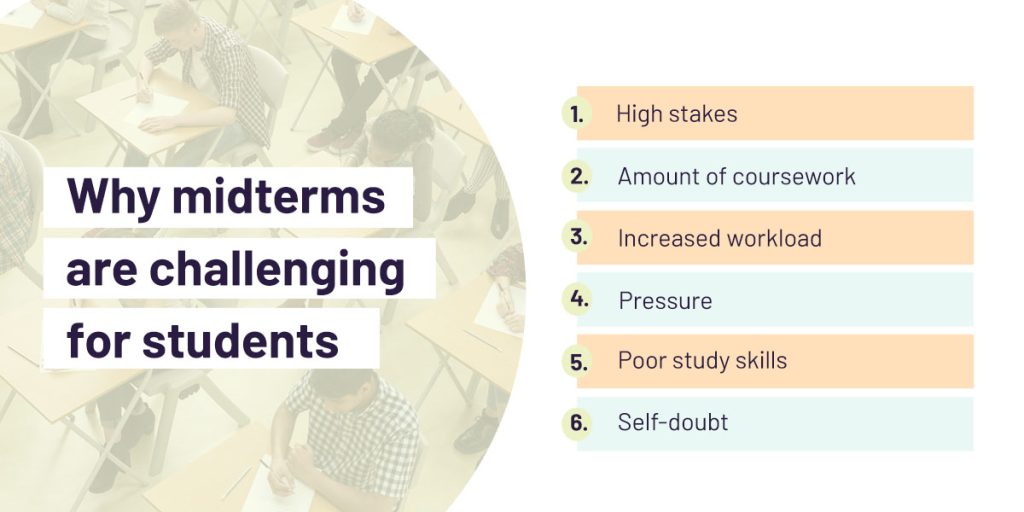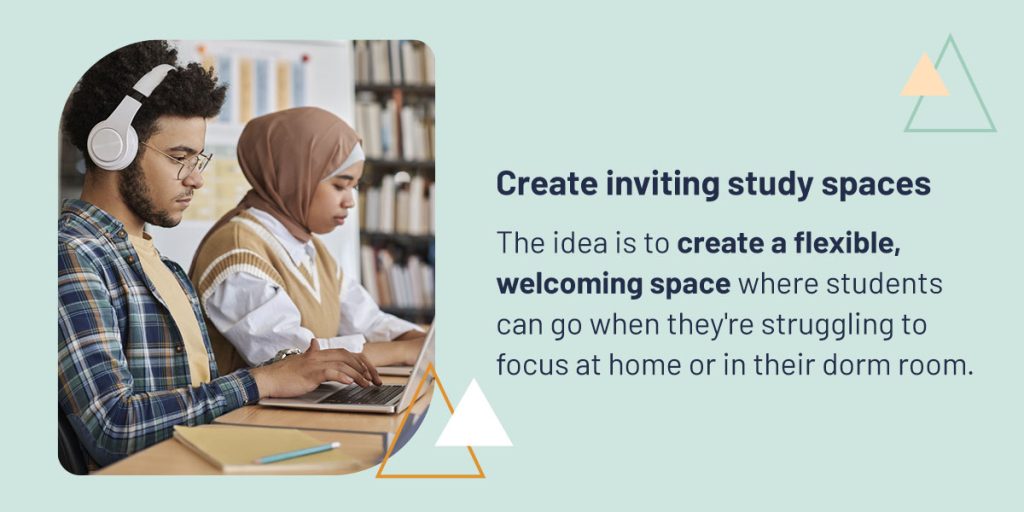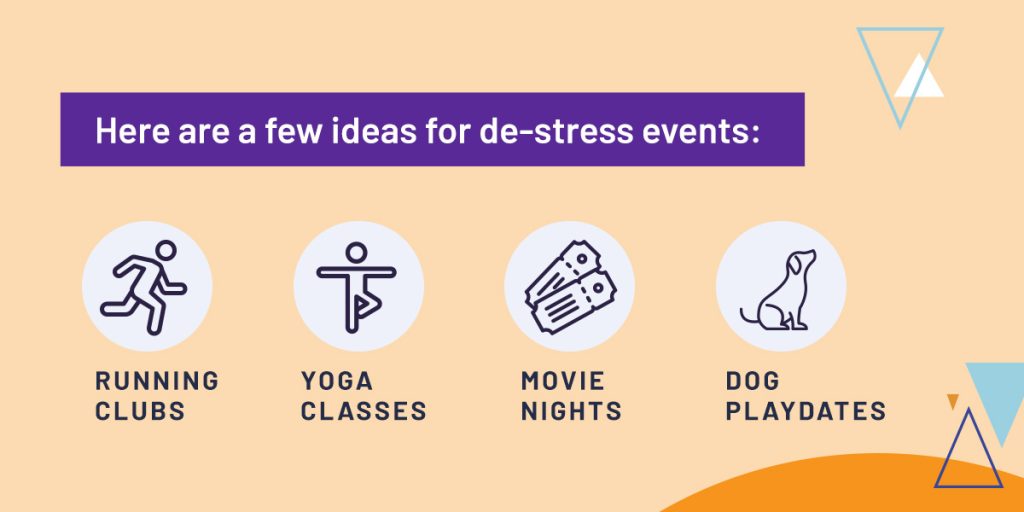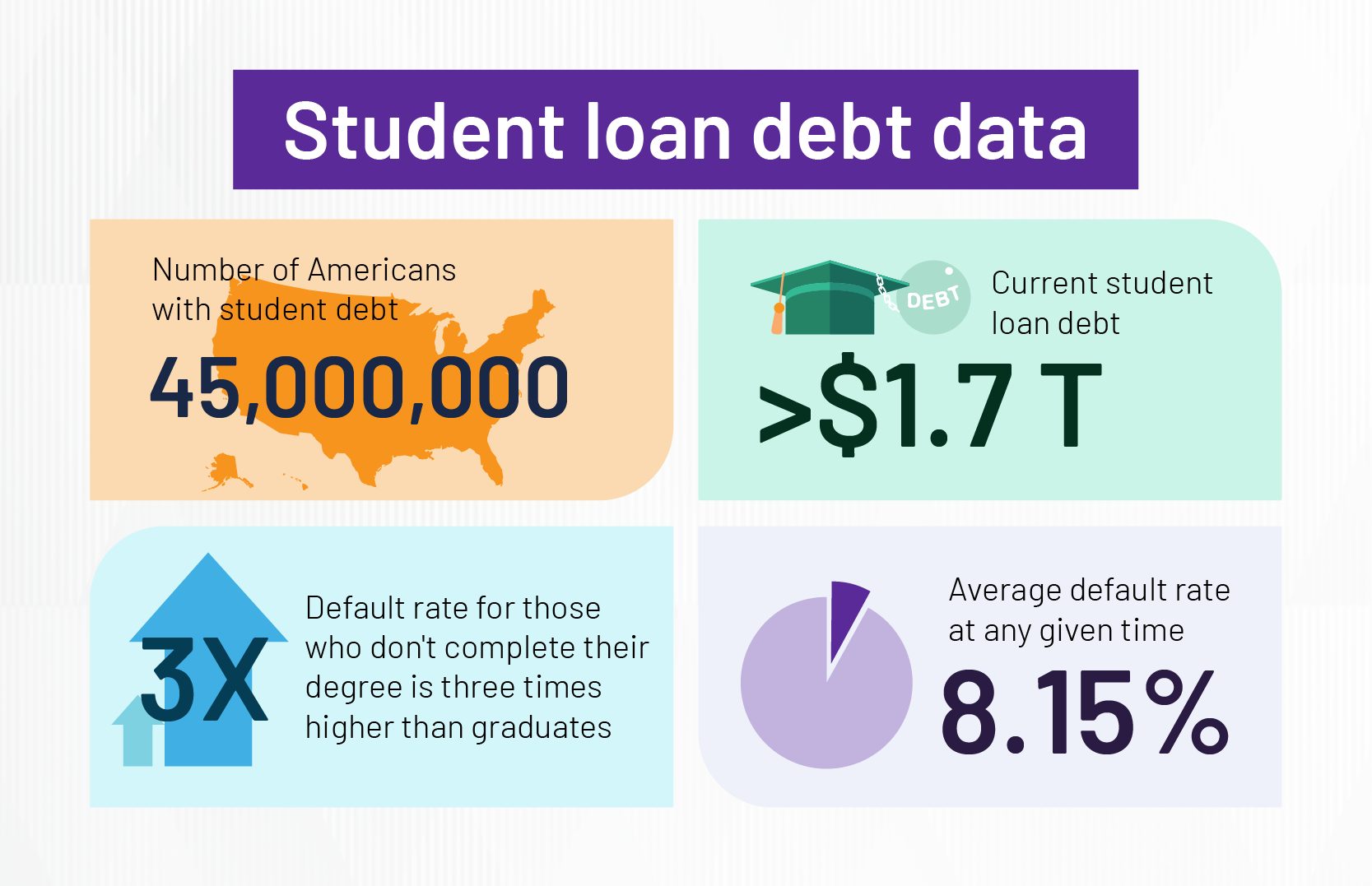
Midterms are critical milestones for college students, allowing them to assess their understanding of the coursework halfway through a semester. They also help students establish good study habits and prepare for final exams. Unfortunately, midterms can also place a lot of pressure on students and make them stressed. Without sufficient support and encouragement, stressed students may perform poorly in midterm exams and lose confidence.
Higher education institutions can combat midterm stress and support students with the various strategies and techniques in this guide. By creating a supportive environment, you can set students — and your institution — up for success.
Why midterms are challenging for students
Most university faculty members are aware of the stress that midterms place on students. It’s visible in their lack of concentration and decreased class attendance rates. But why exactly are midterms so hard on students? While not every student is the same, some may struggle with:

- High stakes: Midterms often contribute a large percentage to a student’s final grades. Students want to get good final grades so they can continue studying and increase their chances of landing a job after graduation. Worrying about passing and doing well can make students anxious and stressed.
- Amount of coursework: Midterms are extensive exams that cover half of a semester’s coursework. This is a lot of material that spans various topics, and students may feel overwhelmed trying to study everything. If they have multiple exams per day, they may feel even more overwhelmed and worried about forgetting important information.
- Increased workload: During midterms, students must balance studying with completing projects, homework, extracurricular activities, and personal life demands. While trying to keep up with everything, students often neglect self-care, which can negatively impact their mental health.
- Pressure: Midterms already have high stakes, but some students face even more pressure from those around them. They may feel they need to achieve specific grades to meet expectations from their family and professors. Some students also hold themselves to high standards. The fear of disappointing others or not meeting personal goals can be stressful and overwhelming.
- Poor study skills: First-year students often come straight out of high school and are new to the challenges of higher education. Higher education coursework can be more demanding and difficult than they’re used to, and they may lack the study skills and habits to prepare themselves sufficiently. Feeling unprepared for midterms can lead to stress and worry.
- Self-doubt: Self-doubt is another factor contributing to midterm stress. Some students may lack confidence in their abilities, making them worry about their exam performance. They can also get anxious if they feel they are not keeping up with their peers.
The importance of fostering a supportive environment
Student success is vital for higher education institutions. When students do well in exams like midterms, it reflects positively on the institution’s reputation. A positive reputation and history of academic success can increase student enrollment and retention. Some U.S. states also tie funding opportunities to performance metrics, making student success even more important.
However, midterm stress can negatively impact academic performance and student engagement. Students who aren’t coping may receive lower grades, struggle to attain sufficient credits, and even drop out. Educational institutions must foster a supportive environment and culture to help students succeed during midterms.
When students feel supported and have the resources to succeed, they can cope with stress and perform better in their midterm exams. Supporting students can also make them more engaged in classes, helping them retain information and think critically. Overall, investing resources into supporting students during midterms benefits the institution as a whole.
How to support students during midterms
Use the following strategies to help students cope with the stress and challenges of midterms:
1. Offer counseling services
Stress is a normal response to high-pressure events like midterms and can help students prepare to do their best. However, high stress levels can activate a person’s flight or fight response, resulting in tense muscles, heart rate spikes, heightened senses, and feelings of unease. Frequent and prolonged periods of intense stress can cause:
- Mental health conditions such as anxiety and depression
- Weakened immune system
- Sleep issues like insomnia and restless legs syndrome
- Problems with memory and concentration
- Headaches, muscle tension, nausea, or fatigue
These conditions can make it hard for students to succeed in their midterm exams. Providing on-campus counseling services is an effective strategy to support their mental health during stressful seasons. A mental health counselor can give students the support and coping mechanisms they need to excel. It’s also beneficial to offer telehealth services so students can access counseling virtually.
2. Create inviting study spaces
Many students struggle with studying for tests and exams. To facilitate studying, institutions can create communal study spaces on campus. These spaces should include collaborative work areas where students can study together. You can also create secluded spots for students who prefer studying alone.
Add tables for students to work at and lounging areas where they can relax and talk to each other. You can also go one step further by embracing modular furniture and layouts that students can change to suit their needs. The idea is to create a flexible, welcoming space where students can go when they’re struggling to focus at home or in their dorm room.

3. Encourage study groups
Providing study spaces is a great first step to supporting student success, but students often need encouragement to utilize them. You may also notice that students use the space but tend to study on their own. However, studying in groups can be more beneficial for them, which is why you should encourage students to form study groups.
Study groups offer an informal learning environment for students to work through exam material together. They may feel more comfortable opening up about the concepts they struggle with and asking for help. Many also find that talking through the course material aids understanding and highlights knowledge gaps. Students may also observe and learn new study techniques from their peers that they can add to their skill set.
4. Host “de-stress” events
Another way to support students throughout midterms is with de-stress events. With the increased workload, students may spend less time socializing and doing fun activities. Hosting events on campus where they spend most of their time can help them manage their stress, meet new people, and lift their mood. Here are a few ideas for de-stress events:

- Running clubs: Exercise is good for mental health, as it causes the body to release feel-good chemicals like endorphins and dopamine. Through exercise, students can improve their mood, memory, and sleep. You can encourage students to get exercise by hosting running events outdoors. Research shows that being outdoors can improve mental and physical health.
- Yoga classes: Yoga is a better option for people who don’t enjoy running or strenuous exercise. With yoga, students can exercise and experience the added benefits of mindfulness, deep breathing, and meditation. These practices can decrease stress, regulate emotions, and improve mental health conditions like anxiety and depression.
- Move nights: A simple and fun de-stress activity to host on campus is a movie night. You can use the equipment and seating in lecture halls or set up a projector outside and encourage students to bring blankets and pillows. Offer movie snacks like soda and popcorn to entice students to join. It can also help to gather movie recommendations and create a poll so students can choose what they watch.
- Dog playdates: Being around animals like dogs and cats is known to make people feel less stressed, lonely, and anxious. However, many students are unable to have pets at college. Your institution can partner with a local animal rescue to host dog playdates and bring the joy of playing with dogs to students. The rescue dogs will also benefit from the socialization and mental stimulation.
5. Offer one-on-one support
Faculty members can participate in student support initiatives by offering one-on-one sessions. Professors can create time slots in their schedules for students to sign up for individual coaching. These sessions allow students to express their concerns confidentially and receive guidance.
One-on-one sessions should be informal so students feel relaxed. Even if professors can only see each student briefly, offering these sessions is still beneficial to address their key concerns. If there are too many students compared to professors, consider offering support sessions to small groups of students.
6. Host review sessions
Review sessions are another way professors can support their students. A review session is an additional class where the professor briefly covers topics included in the midterm exam. Doing so can refresh the student’s memory and help guide their exam preparation.
The professor can use quizzes and practice tests to help students recall the semester’s work, but they should not count toward final marks. Otherwise, the review sessions could add to their stress. Professors can also encourage students to explain concepts to each other to facilitate comprehension.
7. Offer stress-management workshops
Many students don’t know how to manage their stress, making it harder for them to deal with academic demands. Teaching students stress management techniques can help them effectively handle their stress during midterms. Your institution can provide this information through interactive workshops, where students can learn and practice stress management with support from professionals.
Some stress management tips to offer students include:
- Deep breathing exercises to slow the heart rate and calm the mind.
- Meditation and mindfulness practices to focus on the present.
- Guided imagery to imagine themselves in a happier place.
- Walking and going on hikes to exercise and get fresh air.
- Reducing social media use and getting enough sleep.
- Organization and time management practices to stay on top of work.
- Limiting caffeine and alcohol intake to reduce anxiety.
8. Monitor their mental health
Maintaining one’s mental health during midterms is challenging. The stress and pressure from exams, combined with isolation, less sleep, and limited self-care, often lead to burnout and emotional distress. Over time, students may develop mental health conditions that negatively impact their mood and ability to perform well in exams. Today, more than 60 percent of college students have at least one mental health condition.
Educating faculty on mental health issues and their symptoms can help your institution combat college student mental health challenges. Faculty interact the most with students, and they can notice changes in behavior like social isolation, declining grades, and poor attendance. With the right knowledge, faculty can look out for the signs of declining mental health and guide struggling students to seek help.
9. Provide reminders
During the stress of midterms, it can be easy for students to get overwhelmed and let their time management slip. You can encourage professors to frequently remind students of their exam schedule to keep it fresh in their minds. Faculty can also support students by reminding them of time management tools and techniques, such as digital calendars, study schedules, alarms, goal setting, and to-do lists.
10. Emphasize self-care
It’s also beneficial to remind students about the importance of self-care and what that looks like. Eating healthily, getting a good night’s rest, and exercising may become less of a priority when students are cramming for exams. Poor self-care can worsen stress and impact their ability to perform at their best.
Educating students on self-care can make it a priority on campus. Professors can incorporate self-care lessons into the coursework and even offer extra credit for completing self-care tasks and assessments. They can check in with students frequently and create an environment where self-care is a welcome topic of conversation.
Support students with insights from Watermark

At Watermark, we believe that the right insights can drive student, faculty, and institutional success. To help you gather data that matters, we created a suite of innovative software tailored to higher education requirements. In particular, the Watermark Student Success & Engagement software helps institutions support their students.
Student Success & Engagement allows you to gather student information beyond graduation rates so you can dig deeper into the student experience. It tracks students from recruitment and enrollment through to graduation, so support teams have all the information they need to offer personalized guidance. The software also helps faculty collaborate with students to create plans and goals to support their success. Using predictive analytics and early alerts, you’ll know which students veer off course and need additional support.
With Watermark, your institution can boost student engagement, satisfaction, and retention. Request a demo to try out our software today!
































































































































































































































































































































































































